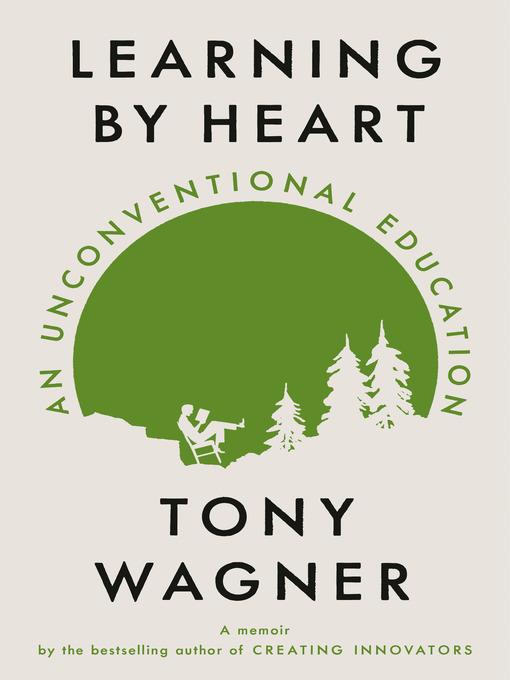
Learning by Heart
An Unconventional Education
- اطلاعات
- نقد و بررسی
- دیدگاه کاربران
نقد و بررسی

December 9, 2019
In this earnest memoir, Wagner (Creating Innovators) shares the school experiences that compelled him to teach high school. Wagner writes of being expelled from high school and dropping out of two colleges in the early 1960s before enrolling in the Friends World Institute, a Quaker college in Washington, D.C., where he discovered an educational setting that encouraged him to pursue his passion for writing and make connections between his studies and culture. Wagner sought out teachers who inspired him, and he discovered that learning required concentration and self-discipline. After college he began teaching, which eventually led him to various Quaker schools including the Sidwell Friends School in D.C., after which he became headmaster at Cambridge Friends School. Wagner eventually attended Harvard, where he earned a PhD in education and became a “teacher of teachers,” and realized that “education fads come and reforms come and go and most are not grounded in research about how children learn best.” Wagner’s passionate memoir serves as blueprint for educators looking to inspire their own students.

January 1, 2020
An educator recalls his struggle to define true learning. In a candid, often bitter memoir, Wagner (Creating Innovators: The Making of Young People Who Will Change the World, 2012, etc.), a senior research fellow at the Learning Policy Institute and former high school teacher, principal, and professor of teacher education, offers a harsh critique of schooling--traditional and nontraditional--that he claims quashes students' love of learning. Most of his schooling was stultifying: He felt like an "outlier" at the small, coeducational, private elementary school that he attended; an all-boys middle school was worse. Disaffected and defiant, he earned such bad grades that he was not invited back for high school. Instead, his parents sent him to a boarding school where one frustrated teacher shouted at him, "you're always gonna be a fuckup," an admonition that haunted him throughout his life. Wagner's demanding, unsympathetic parents tried yet another school--"a 'last chance' school," he soon discovered--where a kind English teacher encouraged his creative writing ability. Overall, though, his teachers were unable "to help me make sense of myself and the world around me." After dropping out of two colleges, Wagner found the Friends World Institute, which allowed students to travel the world to study social issues. That pedagogy reminded him of Summerhill, an experimental learning environment where children followed their interests without restrictive requirements or formal classes. Friends World endorsed Wagner's independent program to examine education that "supported individual's strivings for growth and self-development." The author reached the epiphany that "having an interest wasn't enough. You also have to develop the muscles of self-discipline and concentration needed to pursue your interest and deepen your knowledge and understanding." Graduate study proved as disappointing as earlier educational experiences, and he deems the classes he took at the Harvard Graduate School of Education "a complete waste of time." As a teacher and administrator, despite his good intentions, Wagner suffered failures, which he blames on overconfidence and teacher resistance; eventually, he joined and led several educational reform projects. A combative tone informs a forthright argument for the importance of sparking students' motivation.
COPYRIGHT(2020) Kirkus Reviews, ALL RIGHTS RESERVED.

March 1, 2020
Though Wagner (senior research fellow, Learning Policy Inst.) is a gifted thinker and expert on education, his own scholarly path was rocky, as he bounced around from school to school. Here, he weaves evocative stories of his successes and failures into a discussion of the inadequacies of traditional teaching methods and the importance of student-centered learning. Reading expanded Wagner's world as he rebelled against rote memorization and uninspired lectures; he realized that he could learn only by doing. He details a transformative experience at a summer camp that gave out achievement ribbons, which encouraged him to identify his own interests, develop confidence, and master complex skills. Experiential learning fostered his love of education and motivated him to teach others, and he shares his message of the importance of hands-on learning with readers. VERDICT Wagner writes with passion, and his curiosity, grit, and love of learning will inspire anyone interested in becoming a better teacher.--Elizabeth Connor, Daniel Lib., The Citadel, Military Coll. of South Carolina, Charleston
Copyright 2020 Library Journal, LLC Used with permission.

February 15, 2020
Wagner (Creating Innovators, 2012) has found success as a teacher, administrator, researcher, professor, speaker, author, and as a prominent voice in education policy. As a student, though, Wagner struggled: he despised school as a young boy. Here he tells of his tumultuous journey through his school years. Kicked out of middle school, expelled from high school and a two-time college dropout, Wagner was disenchanted with education from an early age, frustrated by impersonal teachers and tedious schoolwork. He eventually found his place at an alternative Quaker college. Determined to make a difference for others, he attended Harvard graduate school to study how schools can truly create change. This honest and thoughtful memoir reminds readers what's at the heart of learning?a unique individual?and that school cannot be a one-size-fits-all approach. After finally becoming the teacher he always needed himself, Wagner now continues to work tirelessly to advance and inspire the field of education. Teachers cannot do this work alone. We must all play our part. We are all teachers-stewards of future generations-if we choose to be. (Reprinted with permission of Booklist, copyright 2020, American Library Association.)




دیدگاه کاربران